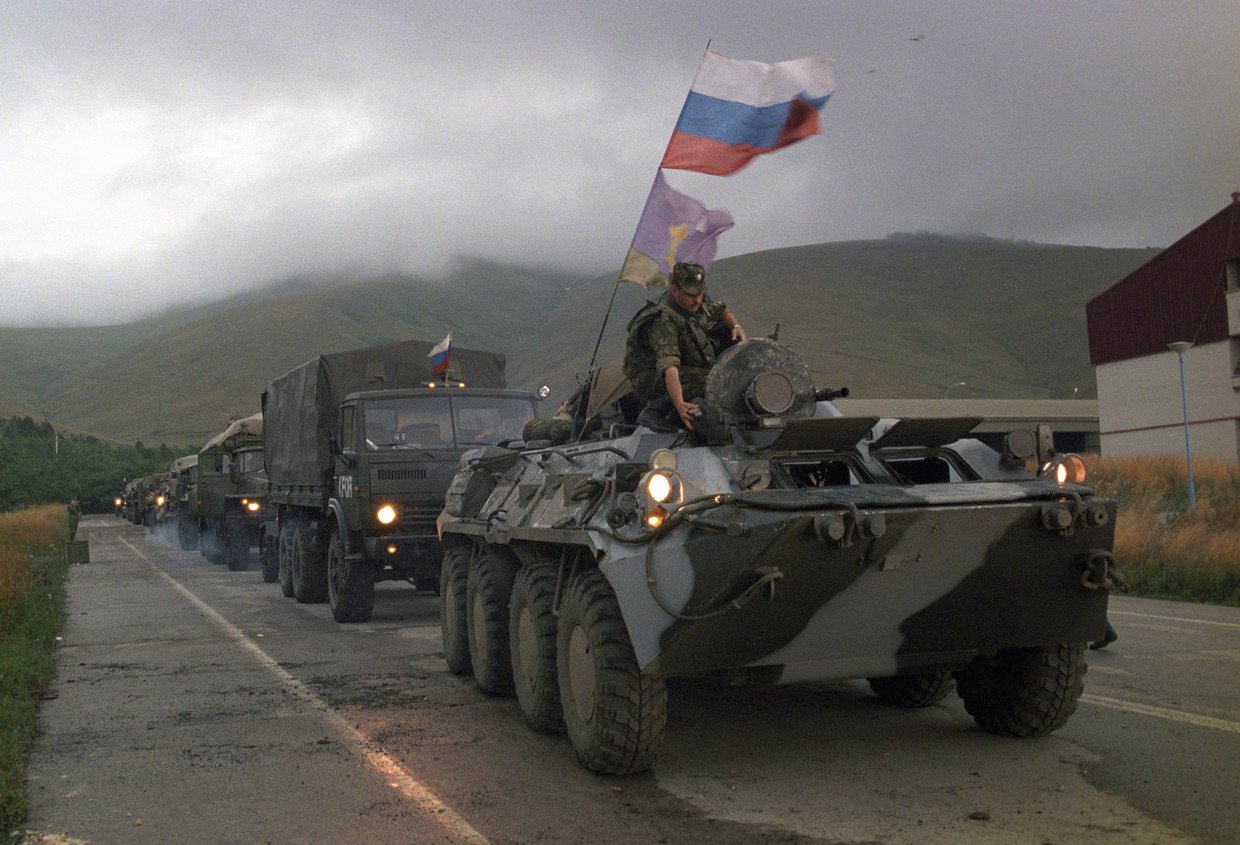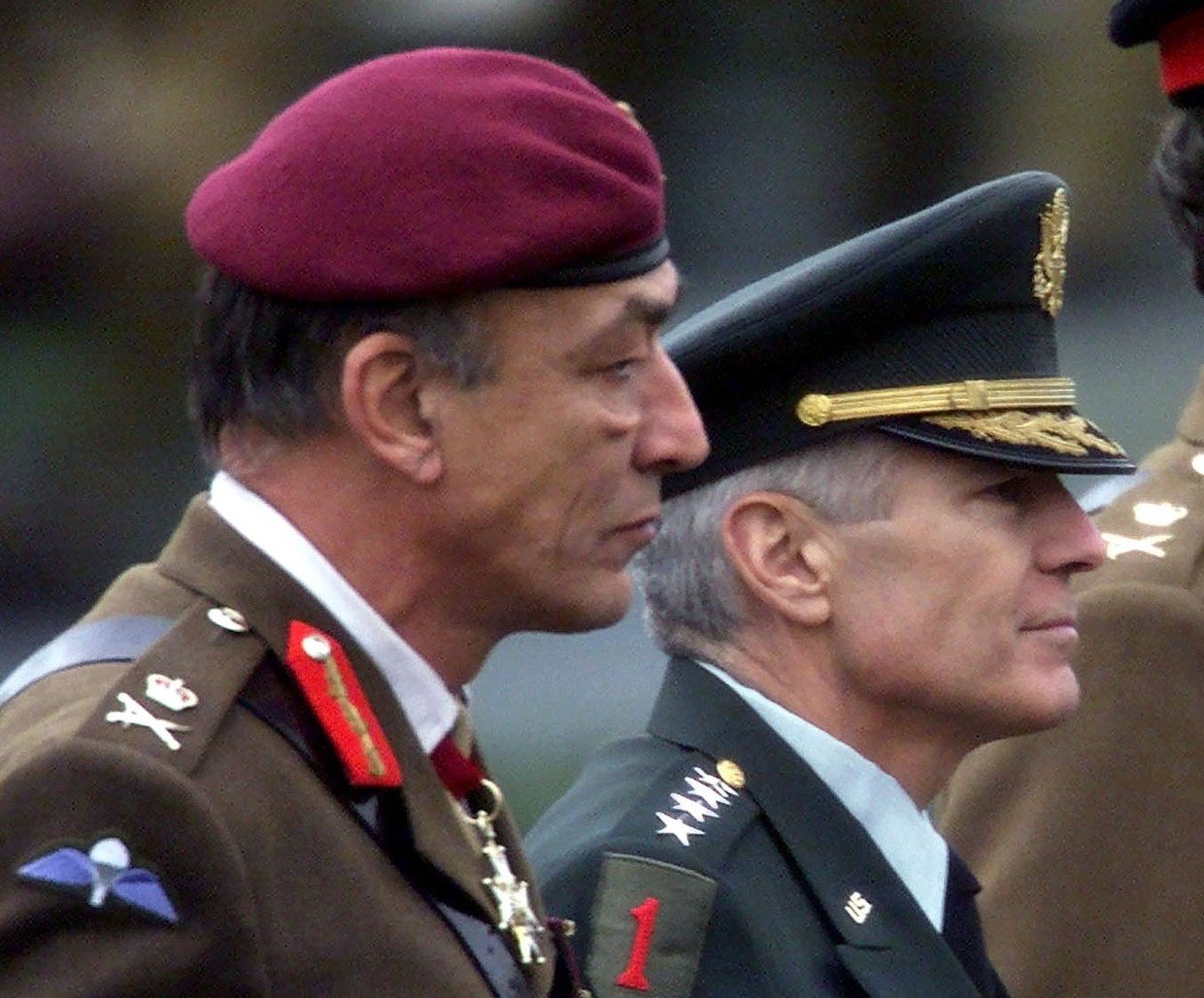Pristina stand-off: How Moscow blindsided NATO with secret Kosovo airport raid 20 years ago
NATO's bombings of Serbia in 1999 had one small episode that is remembered with glee by many Russians. In a surprise deployment, Russian troops seized a strategic airport near Pristina right under the nose of the British.
Exactly 20 years ago, Russian troops deployed to Bosnia and Herzegovina as part of the UN-mandated peacekeeping Stabilization Force (SFOR) executed a highly secretive operation. Amid a training exercise outside their base, 15 BTR-80 armored personnel carriers, two dozen support vehicles, and 200 paratroopers sneaked out and sped southeast.
Their destination was over 600km away in Kosovo, the breakaway Serbian region that was about to gain independence from Belgrade on the back of NATO's three-month bombing campaign. The Serbs were defeated and agreed to retreat while NATO troops were preparing to move in. The Russians were racing against them and militants of the Kosovo Liberation Army to take control of Slatina Air Base, the only airfield in Kosovo suitable for large military transport planes.
Audacity paid off
The swift deployment of the small force was not just a military maneuver, but also a political stunt. NATO's intervention against Serbia was highly humiliating for Russia, Belgrade's historical ally and patron, since its objections were simply brushed aside by the US-led military bloc.
Snatching Slatina airfield just before the NATO troops was Moscow's way to snarl at Washington and show that despite Russia's weakness at the time, it was still relevant. It was the military's counterpart to the diplomatic demarche by Prime Minister Evgeny Primakov, who famously ordered his plane to turn back mid-flight over the Atlantic in protest against the start of the bombings.
"The Russian military leadership and I personally were convinced that there would be no military response from NATO to this stunning Russian audacity," retired General Georgy Shpak, who was commander of the Russian Airborne Troops in 1999, told RT Russian.
"Also, the peacekeeping operation was multinational, so we counted on NATO generals to spend a lot of time coordinating their actions. And this is what happened. The audacity paid off."
In the nick of time
The Russian motorcade arrived at Slatina Air Base early in the morning of June 12, about 20 minutes before the last Serbian troops left, Col. Sergey Pavlov, the commander of the battalion sent in the surprise raid, said in a recent interview. He said the fact that not a single shot was fired was "happenstance, our greatest luck."
"We feared we'd be late. And it was not about NATO troops. We had to arrive before... those Kosovo Albanians," he said.
"They were there on the alert, sneaking in the bushes. We came in the nick of time."

Part of the credit for the success belongs to the advance team of 18 military intelligence commandos who were deployed to Kosovo in May to lay the ground for the operation. Major Yunus-bek Yevkurov, who led the team, was given Russia's highest merit for the mission, which remains partially classified to this day. He made a successful political career after retiring from the military, becoming the head of Ingushetia, one of Russia's southern regions.
Ironically, the biggest threat to the mission was posed by Serb civilians, who were eager to welcome the Russian vehicles on their way to the strategic airport. The enthusiastic crowds of flower-throwing, cheering people – including in Pristina in the middle of the night – slowed the column down.
"I ordered to close the hatches and not to stop for any reason. Go, go, go! The alternative was to stop and not move again," Col. Pavlov said.
No WWIII for you
A few hours after the Russians, the British troops showed up, commanded by an officer who later became famous in civilian life – Captain James Blunt, now a famous singer. There was some grandstanding and bickering, with Russian guards at one point aiming grenade launchers at the British armor to show they meant business, but otherwise everything was peaceful.
The NATO leadership had arguments among themselves, too. Gen. Wesley Clark, the top American commander in Europe at the time, pushed Britain's Gen. Mike Jackson, who commanded the freshly created Kosovo Force (KFOR), to remove the Russians by force, but was reportedly told: "I'm not going to start the Third World War for you."
The clashes in the upper echelons of power, however, didn't stop the foot soldiers from getting along. When the Russians started running out of supplies several days later due to NATO pressuring Romania and Bulgaria to deny entry to Russian transport planes, fellow NATO soldiers started giving them water. As tensions calmed down, the airfield was opened for NATO aircraft while Moscow brought its reinforcements without objections. In mid-October, the site started operating as an international airport with Russian and NATO troops jointly providing security.

The stunt was a great morale boost for the Russian public. But it didn't escalate into a major confrontation with NATO, and ultimately the Western powers got what they wanted – Kosovo torn away from Serbia, creating a highly controversial political precedent that still poisons global politics.
Like this story? Share it with a friend!













